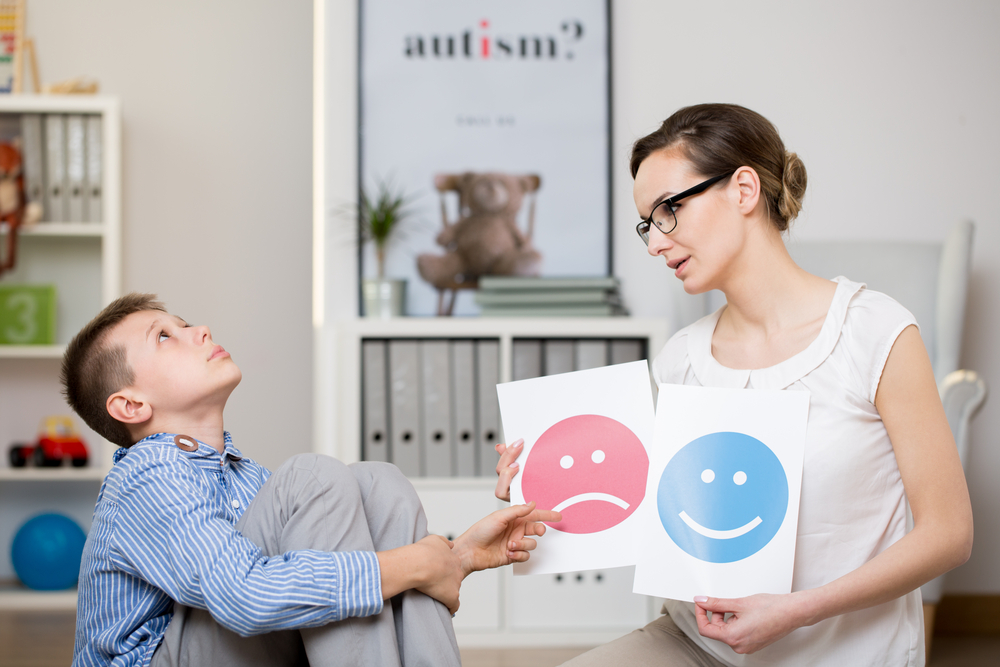Trauma is defined as any type of distressing event or experience that can have an impact on a young person’s ability to cope and function. Trauma can affect the innerworkings of a child’s brain. For example, research indicates that traumatic stress can result in increased cortisol and norepinephrine responses to subsequent stressors, whereby the brain learns to associate certain stimuli with the traumatic event. Endorphins (the hormones in one’s body associated with feeling pleasure) also play an essential role in trauma exposure. An increase in the level of endorphins in the brain occur during trauma, and the levels remain elevated to help numb the emotional and physical pain of the trauma. The Boston Children’s Hospital conducted a study that found sixty-one percent of young people (age 13 to 17) had been exposed to at least one traumatic event in their lifetime, and nineteen percent had experienced three or more traumatic events in their lifetime.
Types Of Therapy
The purpose of therapy is to provide an adolescent trauma survivor with the much-needed support in cultivating effective coping strategies and learning applicable skills to process emotions and memories tied to traumatic experiences, and ultimately create a healthier and more adaptive meaning of the experience that took place in his or her life. There are a variety of therapeutic treatment options available for young trauma survivors, such as:
- Eye movement desensitization and reprocessing (EMDR): EMDR utilizes guided eye movement techniques to help process one’s memories, thoughts, and emotional associations. EMDR shows that the mind can heal from psychological trauma as much as the body recovers from physical trauma.
- Art therapy: Art therapy encourages children to explore self-expression, navigate emotions, and hone problem-solve skills using various art media rather than relying on verbal articulation. It is a technique rooted in the notion that creative expression can foster healing and mental well-being.
- Somatic therapy: This is a body-centered approach that looks at the connection of mind and body and relies on strategies (e.g., breathwork, dance, meditation, etc.) to heal trauma.
- Group therapy: Participating in group therapy sessions can help a young person learn from peers that are navigating thoughts and emotions related to trauma.
- Trauma-focused cognitive behavioral therapy (TF-CBT): This is an evidence-based treatment for children and adolescents impacted by trauma and their parents or caregivers. Through a cognitive behavioral therapy model, TF-CBT aims to resolve a variety of emotional and behavioral challenges resulting from the trauma. TF-CBT emphasizes a gradual exposure component, where the child’s trauma experience is discussed over the course of treatment. Research has shown the more exposure is disseminated, is directly linked to reduced trauma symptoms, and improved mental health.
To help build resilience and overcome trauma, each young person requires a customized and nuanced treatment plan that considers all treatment options, and incorporates the best possible therapeutic modalities, expressly geared to each child’s personal needs.
Further Information and Support
For most of us, life can be very stressful, leading us to feel emotionally charged, which can cause anxiety, panic attacks, depression, and getting stuck in a cycle of being burdened with negative thoughts. Navigating through the challenges and emotional turmoil of life can be overwhelming, but you do not have to go through it alone. Engage Treatment is a Joint Commission Accredited professional psychological practice. We specialize in treating children, teens, and young adults struggling with depression and anxiety through community-focused treatment plans that incorporate a carefully selected combination of therapeutic interventions. Our compassionate, multidisciplinary practitioners are devoted to providing the highest quality of care that helps ignite positive change and enables clients to reach optimal health and well-being. Please do not hesitate to reach out for guidance. We are happy to answer questions and provide you with any additional information. Feel free to call us at 805-497-0605 or email us at [email protected]. You are also welcomed to get in touch by filling out our contact form. We look forward to connecting and having the opportunity to discuss how we might best be able to support you.

